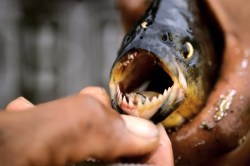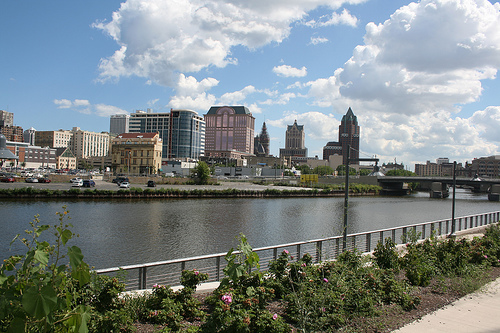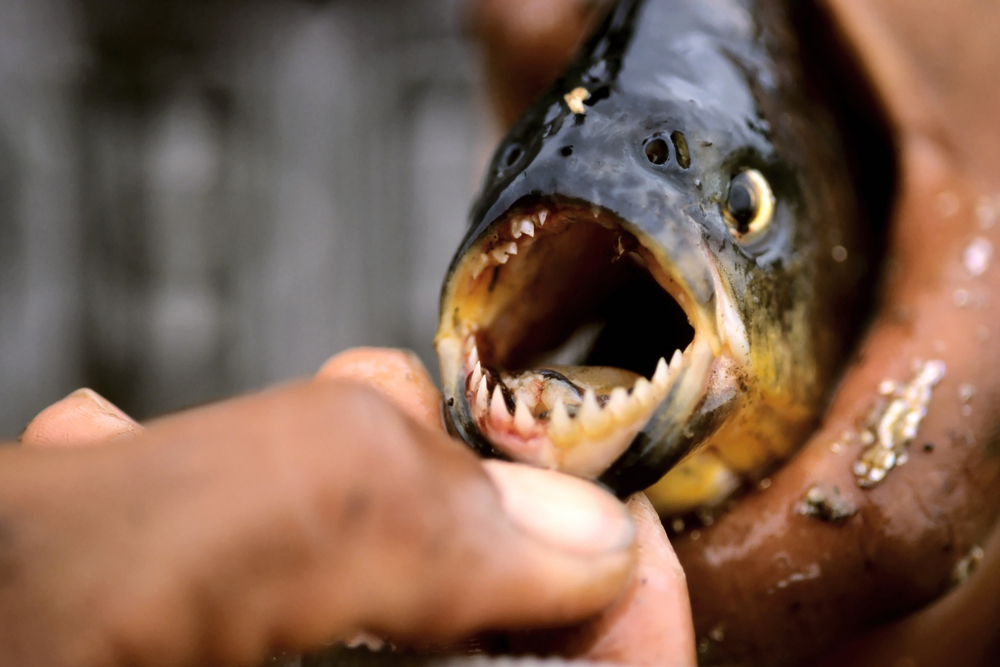
ShutterstockSouth Carolina officials didn’t want residents to know that they could soon be bitten by teeth like these.
Piranhas could be poised to invade South Carolina.
Scarier than the possibility of being eaten alive while taking a dip in Palmetto State waters is the fact that government officials tried to keep the danger a secret from the state’s people.
An onslaught of piranhas is one of many hazards South Carolina faces as the climate changes, according to a 102-page report drafted in 2011 by scientists working for the state Department of Natural Resources. The draft was shelved by department board members, despite earlier plans to distribute it for public review, meaning the scientists’ warnings could have been kept from the public had The State newspaper not recently obtained a copy.
Here are some of the dangers that the draft report warned are in store for South Carolina thanks to climate change, according to The State:
- Arrival of new invasive species, including Asian swamp eels and piranhas.
- Sea-level rise, which will turn rivers salty as briny ocean waters press inland.
- More floods.
- More oceanic dead zones.
- Worse droughts, which will kill marsh grasses. Those grasses provide shelter for marine life including young fish.
- Fewer places suitable for duck hunting.
- Disease-ravaged crabs and shrimp.
- Smaller landings of brown shrimp.
- Plankton blooming at weird times, making it difficult for young fish and other wildlife to feed.
- Fewer male loggerhead turtles, because the gender of a reptile is often determined by the temperature at which it was incubated while in the egg.
Why did department leaders decide to keep these hazards a secret from South Carolinians? You already know the answer, don’t you. From the State article:
The study addresses the politically charged issue of global warming in one of the nation’s most conservative states. One scientist involved in the study said the group that wrote the report realized global warming is more than a scientific issue to some people.
“There were concerns about the political nature of it,” said Barry Beasley, a former DNR staff member who was involved in initial work on the report.
So instead of helping South Carolinians prepare for a long list of imminent hazards, officials who oversee the state’s natural resources decided to just let everybody kind of wing it as they drown in swelling salty rivers infested with hungry Amazonian devil fish. Because, you know. Politics.




